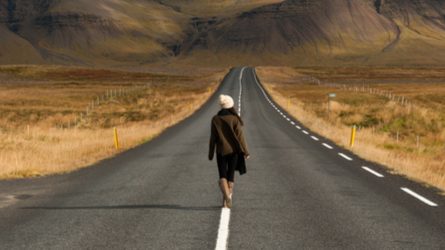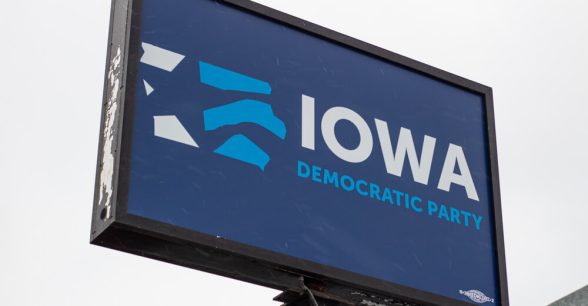My Fight for Independence is a Fight for Disability Rights
For the first two decades of my life, I was never alone. Growing up with vocal cord paralysis, I was always accompanied by either my nurses, my parents, or another adult who was trained to work with kids who wear tracheostomy (trach) tubes to help them breathe, like me. I constantly struggled with the desire to be autonomous in my everyday life, but when I finally grew up and left home, my perception of independence changed.
During my childhood, my parents would drop me off at school every morning and my school aide would pick me up. The school aide would go to classes with me, follow me to lunch, and generally always be there wherever I went. After school, a home care nurse would pick me up and spend the rest of the afternoon with me at home until my parents returned from work.
I have had dozens of nurses and aides over the course of my life. They would cook with me, go shopping with me, accompany me to after-school activities, and exchange life stories with me. They’ve even saved my life, confirming how important it is for me to have medical support nearby. I’ve made long-lasting friendships with a few of them, and we still talk on the phone to this day.
Now that I’m grown, it’s easy to appreciate everything my parents, nurses, and caretakers have done for me. But as a child, I often felt rebellious and wanted to prove that I could be independent. I wanted to be on my own and have the ability to do whatever I wanted without having to ask permission or gauge another person’s thoughts or feelings. Sometimes I would skip or visit other classes without telling my nurses just for the thrill of it. At home, I’d ride my bike just far enough until my house was out of sight and my parents couldn’t see me from the window anymore, and then I’d quickly turn back with my heart pounding.
Back then, being independent meant being able to hold hands with my boyfriend without my nurse walking directly behind us. It meant hanging out with friends after school just for fun, having sleepovers at other kids’ houses and going on field trips without an adult besides my teacher. In college, it meant enjoying nightlife or group dinners without worrying about what my aunt would think, with whom I’d lived at the time. It also meant proving to my parents that I knew how to take care of myself, both in terms of my disability and navigating the world outside of my well-nurtured bubble.
Then, when I was 23, I left home and moved to New York City by myself to attend graduate school and pursue a career in journalism. It was the first time I was truly alone, living with roommates who didn’t have a clue about my disability and going to school in one of the most populous cities in the world. It was both exhilarating and terrifying, because now that I’d finally gotten what I always wanted — independence — I felt pressure to prove to everyone (my family, my nurses, my friends back home and myself) that I could handle it.
After I finished my one-year graduate program in journalism, I did a summer internship at a local newspaper and, afterwards, completed a lifestyle fellowship at the largest news website for millennial women. It was during this fellowship that I started writing about politics and social issues through the lens of intersectional feminism. For the first time, I wrote personal essays about living with a disability, and those essays expanded to include reporting on disability issues across education, health care, politics and beats that many non-disabled people wouldn’t normally associate with disability because of harmful social stigmas, like sex and relationships.
Over the past couple of years, I’ve discovered a passion for disability activism in the form of journalism. Even though people with disabilities make up 20 percent of the entire population, the vast majority of issues that affect our communities are under-reported in the media. Many stories about disability and disabled people are written as inspiration porn, or stories that reduce people with disabilities to heroes or objects of inspirations, solely because of their disability. As a result, these stories take up the space where we should be talking about significant issues like workplace discrimination, reproductive health care, accessibility in schools, and disability representation in Hollywood.
Since I became a disability activist and journalist, my definition of independence has changed — or rather, expanded. I still greatly value my ability to live and work on my own, and I believe a huge part of being (and feeling) independent is living however I want, regardless of what people think or expect of me as a disabled person. But I’ve also realized that disability independence is about much more than just one individual. Independence is about fighting for our human rights through policy and disability activism.
It’s about sharing the stories of people with disabilities who haven’t previously had the chance to use their voices. It’s about dismantling disability oppression and breaking down the detrimental barriers in society — both literal and figurative — that have excluded disabled people for decades. And it’s about advocating for government policies that protect disabled people’s rights to live up to their fullest potential and to have healthy, safe, accessible, and fulfilling lives.
A few years ago, I didn’t know what it meant to be a disability activist. I don’t think I even knew what it was, or that disability activism even existed. It took years for me to define what being disabled meant for me personally, and I’m now learning every single day the role of disability in our society’s culture, politics, and overall history. What I do know is that my independence is connected to the independence of all disabled people. Only when people with all disabilities — physical or mental, visible or invisible, congenital or acquired — are free from disability stigmas and societal barriers can our collective communities be considered truly liberated.
About Rooted In Rights
Rooted in Rights exists to amplify the perspectives of the disability community. Blog posts and storyteller videos that we publish and content we re-share on social media do not necessarily reflect the opinions or values of Rooted in Rights nor indicate an endorsement of a program or service by Rooted in Rights. We respect and aim to reflect the diversity of opinions and experiences of the disability community. Rooted in Rights seeks to highlight discussions, not direct them. Learn more about Rooted In Rights



